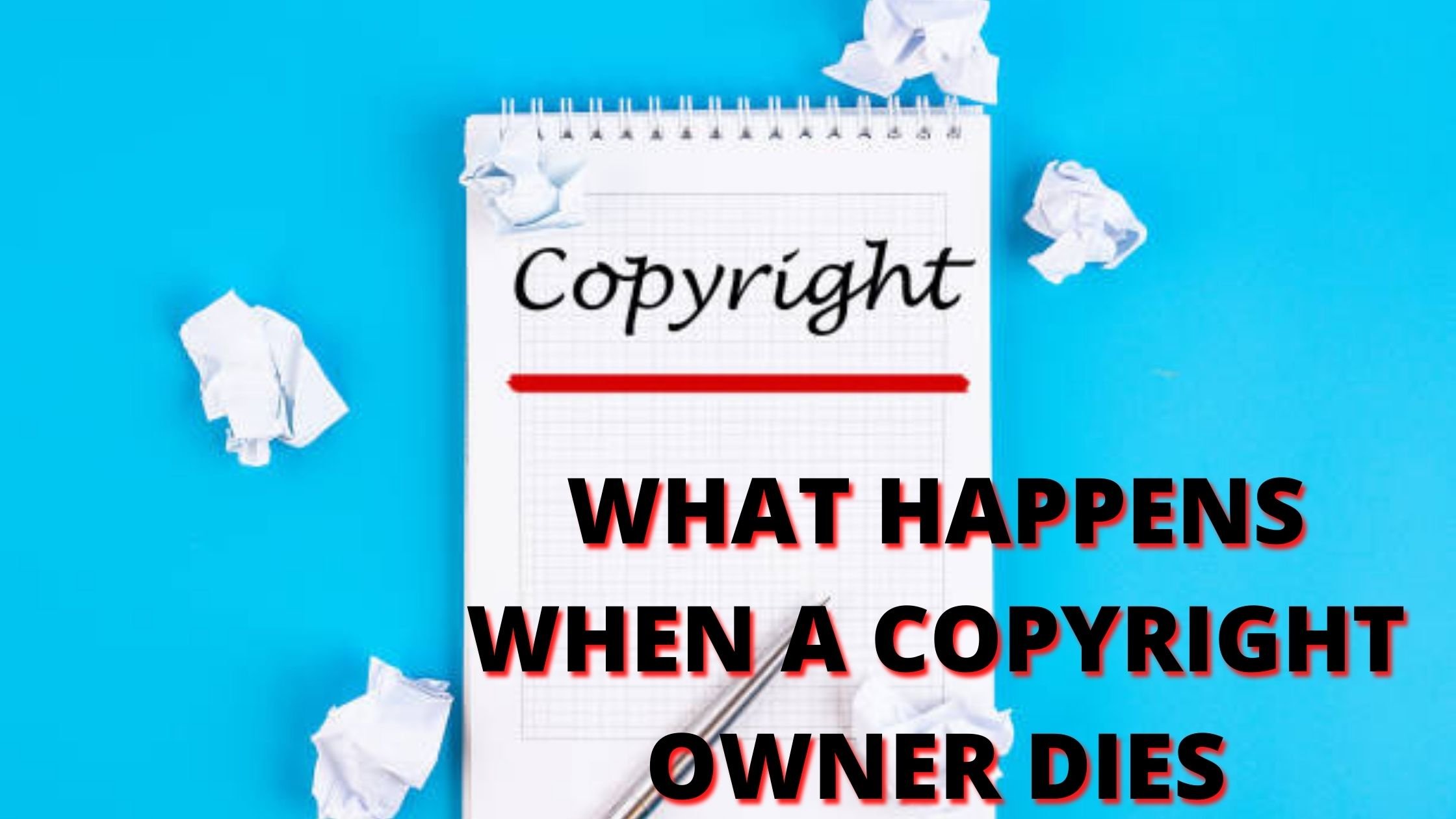WHAT HAPPENS WHEN A COPYRIGHT OWNER DIES
The general rule is that the copyright lasts for 60 years. The period of 60 years from the year after the death of the author is counted in the case of original literature, dramatic, musical, and artistic works. A total of 60 years shall be counted from the date of publication for films, sound recordings, portraits, posthumous publications, anonymous and pseudonymous publications, public works, and works of international organizations. A copyrighted work does not become a public domain when its author dies. The amount of time a work is covered by copyright depends on when the work is produced/publicized and when the author dies. When an author dies, the ownership of the copyright changes.

WHAT HAPPENS WHEN A COPYRIGHT OWNER DIES
The general rule is that the copyright lasts for 60 years. The period of 60 years from the year after the death of the author is counted in the case of original literature, dramatic, musical, and artistic works. A total of 60 years shall be counted from the date of publication for films, sound recordings, portraits, posthumous publications, anonymous and pseudonymous publications, public works, and works of international organizations. A copyrighted work does not become a public domain when its author dies. The amount of time a work is covered by copyright depends on when the work is produced/publicized and when the author dies. When an author dies, the ownership of the copyright changes.
Copyright is personal property, so the individual who created the work will choose to whom the copyright rights are assigned. Copyright is not treated differently from other assets, This makes sense because the law tries as best as it can to handle a copyright-like any other commodity or property. If anyone passes his copyright by a license or an assignment, even after death, the arrangement will normally always be enforceable. This is a shift to traditional contracting laws, especially for services, where contracts are terminated by death. A copyright can be mortgaged and the rights can not actually change hands after the copyright has been mortgaged. In order to claim the mortgagee's copyright back, the legal heirs have to pay the mortgage money. Furthermore, since the mortgagee does not have copyright possession until he becomes a legal owner due to the default of the mortgagee's payment, he will not alienate the copyright-related rights. If the original owner of the copyright has created a fee on the asset, then the rightful heirs would also need to repay the debts in that respect before claiming a valid copyright title. In the case of the original bankruptcy of the holder, the copyright is passed to the official liquidator under the applicable statute, as it is considered to be an asset that can be used to collect money. The original holder's heirs are unable to claim ownership of the copyright in such a situation. Considering that a copyright is the personal property of the owner, as he deems it appropriate, the author is fit to dispose of the property. It is open for the writer to sell his property to anyone he likes. If the author dies intestate, the copyright is passed on to his descendants or legal representatives as part of his assets and is split between his legal heirs in accordance with the applicable law. However, if the author makes a will, then along with the relevant rules, the testamentary mode of succession will be followed. If two authors jointly own a copyright, the share of the copyright is passed on to their legal representatives or heirs upon the death of either one and not the entire copyright, since tenant owners are the joint authors. However, the moral rights linked to copyright are not passed by these means. The moral rights of a copyright can not be transferred if the original owner of the copyright specifically transfers moral rights to another by assignment. When no such transfer is made, the economic rights and the possession of the copyright are the rights which are transferred.
When a legal representative or an heir owns the copyright, he has complete control over the rights associated with the copyright. He has the right to use it for all monetary benefits before the security term lasts. However, monetary manipulations, such as licensing and assignment, takes place in the name of the original author, unless the original author has already passed on his moral rights. This means that, over the entire period of protection of copyright, the original author is given fair consideration of his rights. It is also obvious that the original owner of any copyright has several benefits arising from the copyright. The fact that for his hard work and investment, the original author should be compensated has also been properly achieved. It was also ensured that the author's licensing rights were passed on to his recipients so that they could use the copyright monetarily as well. It is also clear that there is no distinction between the rights given to the author and to his legal representatives or heirs. This lack of distinction means that the protected copyright term is not only used to the fullest but also that his work is given full credit to the author.
BY:-
RAKSHA SINGHAL












